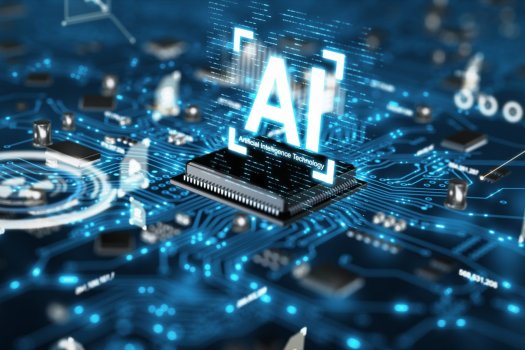AI technology has a vital role to play in the future of business and academia, and the better our understanding of it, the more it can expand across sectors and skill sets
Most forms of technology applications are well understood. Every computer program can be deconstructed into the basic building blocks of code, and if it goes wrong, you can debug the software – often by simply stepping through the code line by line in order to find out where the problem lies. Artificial Intelligence, or AI, is different.
With the latest AI large language models we can’t predict exactly what it will output, but it will do a good job at writing an article or creating poetry. That’s the beauty of these AI technology models. What makes them human-like is the lack of predictable outcomes – humans simply aren’t predictable!
These state-of-the-art models such as GPT-3 have been trained on huge datasets of billions of pages of text and contain hundreds of billions of parameters. And although we can’t predict the exact outcome, we can train them to do what we want. This is leading to hugely exciting use cases, explains Penny Li, SVP, VLSI at SambaNova Systems.
As AI grows in use and becomes increasingly synonymous with the working landscape, the perception of the technology, and therefore the industry, as an impenetrable field is being greatly undermined. The key players required in AI are not academic researchers taking a custodial role, but individuals from all walks of life with differing perspectives. They are greatly needed to support technology’s growing role in all fields.
Continue reading: https://www.openaccessgovernment.org/ai-artificial-intelligence-business-academia/146229/
Most forms of technology applications are well understood. Every computer program can be deconstructed into the basic building blocks of code, and if it goes wrong, you can debug the software – often by simply stepping through the code line by line in order to find out where the problem lies. Artificial Intelligence, or AI, is different.
With the latest AI large language models we can’t predict exactly what it will output, but it will do a good job at writing an article or creating poetry. That’s the beauty of these AI technology models. What makes them human-like is the lack of predictable outcomes – humans simply aren’t predictable!
These state-of-the-art models such as GPT-3 have been trained on huge datasets of billions of pages of text and contain hundreds of billions of parameters. And although we can’t predict the exact outcome, we can train them to do what we want. This is leading to hugely exciting use cases, explains Penny Li, SVP, VLSI at SambaNova Systems.
As AI grows in use and becomes increasingly synonymous with the working landscape, the perception of the technology, and therefore the industry, as an impenetrable field is being greatly undermined. The key players required in AI are not academic researchers taking a custodial role, but individuals from all walks of life with differing perspectives. They are greatly needed to support technology’s growing role in all fields.
Continue reading: https://www.openaccessgovernment.org/ai-artificial-intelligence-business-academia/146229/

